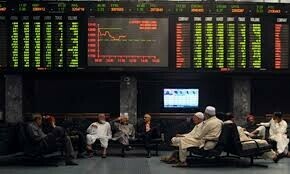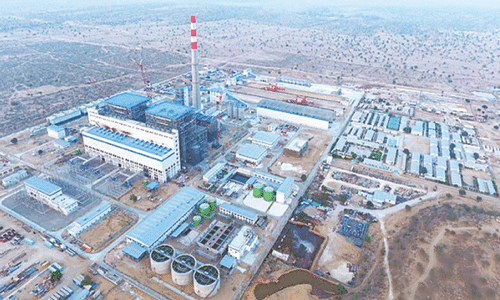ISLAMABAD: Tax exemptions rose by 30 per cent to Rs540.98 billion from last year, the second highest growth in the five-year tenure of PML-N despite three successive years of reductions in overall tax exemptions.
Tax exemptions are the revenue foregone by the state by granting exemptions under different categories to various industries and other groups.
The single-largest contributor to the surge in tax exemptions is the Free Trade Agreement (FTA) with China, where the figure came in at Rs92.4bn, climbing by 46pc from last years Rs63bn.
As a proportion of total revenues collected by the Federal Board of Revenue (FBR), the cost of exemptions stood at 12pc in 2012-13 when the incumbent government took charge from the previous government. Based on Economic Survey estimates for the current year, it will reach 13.5pc in case the budgetary target for FBR revenues is achieved. If there is a shortfall, the proportion will be higher still.
The final economic survey of the government built on its narrative of economic revival, with growth and investment leading the story. Power sector investments as well as pending works under CPEC were headlined in the presentation, while questions about the circular debt and growing current account deficit lingered uncomfortably in air. Performance has been strong, the survey shows, but how much longer it will last is left up to the reader to decide.
The increase in tax exemptions comes in spite of three rounds of SRO removal carried out by the federal government as part of the IMF programme that ran from 2013 an 2016. In the first year of its rule, the PML-N government took this figure to Rs477.1bn in 2013-14.

A huge benefit of Rs34.7bn has been extended for balancing, modernisation and replacement of plant and machinery. The revenue loss due to interest on house building is estimated at Rs1bn.
A tax credit of Rs3.32bn has been extended on the establishment of new industrial undertakings.
The rest of the exemptions are shared by relief on education expenses, sales to registered taxpayers, export of IT services.
Sales tax exemptions rose to Rs281.05bn in 2017-18 from Rs250bn a year ago, reflecting an increase of 12.4pc.
In the year 2014-15, the government shifted the exemptions based on statutory regulatory orders (SROs) into the schedules of the Sales Tax Act of 1990.
One SRO1125-based sales tax exemption, extended to five export sectors — leather, textile, carpets, surgical and sports goods — surged to Rs61.3bn from Rs50.4bn in 2016-17, reflecting an increase of 21.6pc.
Exemptions on the import and local supply of items placed under the sixth schedule of the Sales Tax Act have been recorded at Rs172.1bn this year from Rs156.9bn, a year ago showing an increase of 9.7pc. The sixth schedule is a list of exempted products, mostly consumer items.
The cost of exemption on the import of products under Eighth schedule stood at Rs19.3bn this year as against Rs16.4bn last year, an increase of 17.7pc. The schedule applies to items imported under specified conditions.
The cost of exemption on the local supply under 5th schedule stood at Rs27.6bn.

The customs exemptions went up to Rs198.15bn from Rs151.7bn a year ago, an increase of 30.6pc. Close to half this amount was due to imports exempted under the FTA with China.
FTAs with Malaysia and Sri Lanka also witnessed growth in terms of tax exemption cost. The cost of revenue because of FTA with Sri Lanka was Rs2.8bn, and Malaysia Rs2.67bn. Under preferential trade agreement (PTA) with Indonesia, the revenue cost was estimated at Rs3.86bn, and South Asian Free Trade Area agreement at Rs1.32bn.
No exemption cost was reported on trade with Iran while in the case of Economic Cooperation Organisation countries the cost of exemption went up to Rs274m this year from Rs73m a year ago.
In its second year (2014-15), exemptions worth Rs105bn given through SROs were withdrawn. In the subsequent two phases, a similar amount of withdrawal was announced in budget speeches.
The impact of the tax exemptions withdrawal was noted in the next two years—2014-15 and 2015-16. The exemption cost fell to Rs394.59bn by end of 2015-16.
In FY 2017, tax exemption cost escalated to Rs415.75bn despite claim of reducing tax exemptions for the third year.
In the last year survey, the exemptions to independent power producers (IPPs) were not mentioned. But in Economic Survey 2017-18, the tax loss due to exempt business income claimed by IPPs were estimated at Rs18bn.
Upward trend was seen in tax exemption cost due to rising preferential imports under FTA with China. The tax exemption cost rose nearly to R32bn in 2017-18 from Rs22bn in 2012-13.
Another important aspect mentioned in the Economic Survey is a meagre amount of Rs397m duty exemption cost on account of CPEC-related imports. The figure is small despite government claims that large amount of machinery is being imported from China for CPEC investments.
Published in Dawn, April 27th, 2018














































